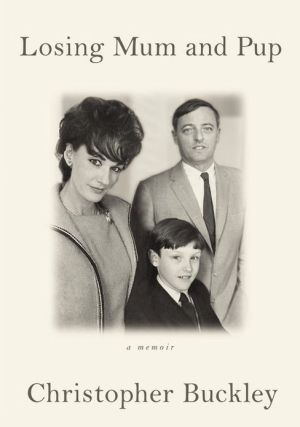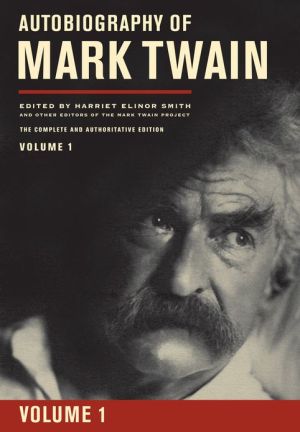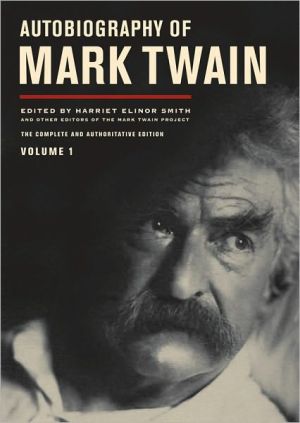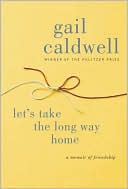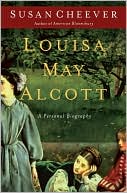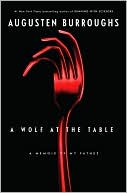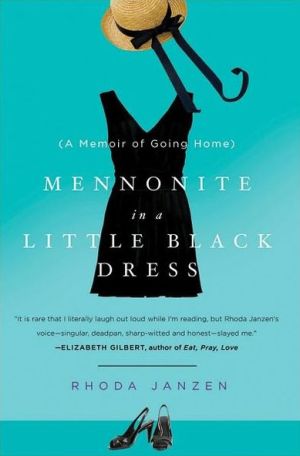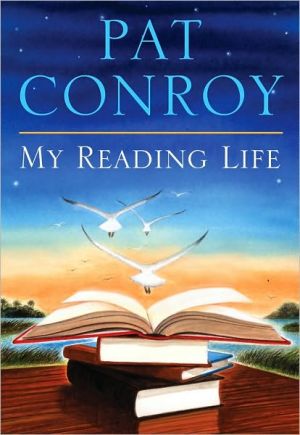Losing Mum and Pup
"I had more or less resolved not to write a book about my parents. But I'm a writer, and when the universe hands you material like this, not writing about it amounts either to waste or a conscious act of evasion."\ So begins award-winning author Christopher Buckley in the most personal and transcendent work of his life, the tragicomic true story of the year in which both of his parents died.\ In twelve months between 2007 and 2008, Buckley coped with the passing of his dad, William F....
Search in google:
“I had more or less resolved not to write a book about my parents. But I’m a writer, and when the universe hands you material like this, not writing about it amounts either to waste or a conscious act of evasion.”So begins award-winning satirist Christopher Buckley in the most personal and transcendent work of his life, the tragicomic true story of the year in which both of his parents died. In twelve months between 2007 and 2008, Buckley coped with the passing of his father, William F. Buckley, the father of the modern conservative movement, and his mother, Patricia Taylor Buckley, one of New York’s most glamorous and colorful socialites. He was their only child and their relationship was close and complicated. Writes Buckley: “They were not — with respect to every other set of loving, wonderful parents in the world — your typical mom and dad.”As Buckley tells the story of their final year together, he takes readers on a surprisingly entertaining tour through hospitals, funeral homes, and memorial services, capturing the heartbreaking and disorienting feeling of becoming a fifty-five-year-old orphan. Buckley maintains his sense of humor by recalling the words of Oscar Wilde: “To lose one parent may be regarded as a misfortune. To lose both looks like carelessness.”Christopher Buckley offers consolation, wit, and warmth to those coping with the death of a parent, while telling a unique personal story of life with legends. The Barnes & Noble Review Christopher Buckley prizes being debonair and puckish the way Dolly Parton has long valued being a 40DD, and for pretty much the same reason. Having established up front that boredom isn't in the cards, he and she can both talk about whatever they like. His comic Washington novels often wear thin on me, especially when he lets a larky premise do all the work and treats the rest as mere typing. But his Beau Brummell jests about politics and other train wrecks are the main reason I regularly check out Tina Brown's Daily Beast website, his perch for current events commentary since last fall.
Preface\ \ I’m not sure how this book will turn out. I mostly write novels, and I’ve found, having written half a dozen, that if you’re lucky, the ending turns out a surprise and you wind up with something you hadn’t anticipated in the outline. I suppose it’s a process of outsmarting yourself (not especially hard in my case). Perhaps I’m outsmarting myself by writing this book at all. I’d pretty much resolved not to write a book about my famous parents. But I’m a writer, for better or worse, and when the universe hands you material like this, not writing about it seems either a waste or a conscious act of evasion.\ By “material like this,” I mean losing both your parents within a year. If that sounds callous or cavalier, it’s not meant to be. My sins are manifold and blushful, but callousness and arrogance are not among them (at least, I hope not). The cliché is that a writer’s life is his capital, and I find myself, as the funereal dust settles and the flowers dry, wanting – needing, perhaps more accurately – to try to make sense of it and put the year to rest, as I did my parents. Invariably, one seeks to move on. A book is labor, and as Pup taught me from a very early age – so early, indeed, that I didn’t have the foggiest idea what he was talking about – “Industry is the enemy of melancholy.” Now I get it.\ There’s this, too: My parents were not – with all respect to every other set of son-and-daughter-loving, wonderful parents in the wide, wide world – your average mom and dad. They were William F. Buckley Jr. and Patricia Taylor Buckley, both of them – and I hereby promise that this will be the only time I deploy this particular cliché – larger-than-life people. A gross understatement in their case. I wonder, having typed that: Is it name-dropping when they’re your own parents?\ But larger than life they both were, and then some. Larger than death, too, to judge from the public outpouring and from the tears of the people who loved them and mourn them and miss them, none more than their son, even if at times I was tempted to pack them off to earlier graves. Larger-than-life people create larger-than-life dramas.\ To the extent this story has a larger-than-personal dimension, it is an account of becoming an orphan. I realize that “orphan” sounds like an overdramatic term for becoming parentless at age fifty-five; but I was struck by the number of times the word occurred in the eight hundred condolence letters I received after my father died. I hadn’t thought of myself as an “orphan” until about the sixth or seventh letter: Now you’re an orphan. . . . I know the pain myself of being an orphan. . . . You must feel so lonely, being an orphan. . . . When I became an orphan it felt like the earth dropping out from under me. At length a certain froideur encroached as the thought formed, So, you’re an orphan now. I was jolted happily out of my thousand-yard stare a month later by an e-mail from my old pal Leon Wieseltier, to whom I’d written to say that I was finally headed off to Arizona for some R&R: “May your orphanhood be tanned.”\ Orphanhood was a condition I had associated with news stories of disasters; a theme I had examined intellectually in literature at college and beyond. It’s one of the biggies, running through most of Melville, among others, and right down the middle of the great American novel Adventures of Huckleberry Finn.\ I’m an only child, albeit encompassed and generously loved by an abundance of relatives, forty-nine first cousins on the Buckley side alone. Still, I have no sibling with whom to share my orphanhood, so perhaps the experience is more acutely felt. Only children often have more intense, or at least more tightly focused, relationships with their parents than children of larger families. This was, at any rate, my experience.\ I don’t know that I have anything particularly useful, much less profound, to impart about the business of losing one’s parents, other than this account of how it went in my case. I doubt you’ll be stunned to hear that it has a somewhat dampening effect on one’s general felicity and inclination to humor. I recall, on entering the vestibule of Leo P. Gallagher & Son Funeral Home the first time after Mum died, seeing a table stacked with pamphlets with titles like Losing a Loved One or The Grieving Process, illustrated with flowers and celestial sunbeams. As a satirist, which is to say someone who makes raspberries at the cosmos, my inclination is to parody: Okay, They’re Dead: Deal with It or Why It’s Going to Cost You $7,000 to Cremate Mummy. But standing there with my grief-stricken father, the banal suddenly didn’t seem quite so silly or in need of a kick in the rear end, and (believe me) I’m a veteran chortler over Oscar Wilde’s line “It would require a heart of stone not to laugh at the death of Little Nell.” Right after JFK was shot, Mary McGrory said to Daniel Patrick Moynihan, “We’ll never laugh again,” to which Moynihan responded, “Mary, we’ll laugh again, but we’ll never be young again.”\ It occurs to me that Moynihan’s reply brushes up against the nut of the orphanhood thing (as my former boss George H. W. Bush might put it) – namely, the accompanying realization that you’re next. With the death of the second parent, one steps – or is not-so-gently nudged – across the threshold into the Green Room to the river Styx.\ One of my early memories, age five, is of being in bed with my parents and being awoken in the middle of the night by the ringing of the phone. A great commotion of grown-ups followed: Mum going down to make coffee, Pup hunched over the phone, speaking in grave, urgent tones. Of course, I found it all exciting and eventful and hoped it would involve – with any luck – a reprieve from school that day. “What is it?” I asked Mum. “Pup’s father has died, darling.” Apart from being in the car when she drove over the family cocker spaniel, this was my first brush with death. Then, an even half century later, the phone rang again with the news that my father had died.\ In the Zen koan, the noble lord sends word throughout the land, offering a huge reward to anyone who can distill for him in poetry the definition of happiness. (This was in the days before Who Wants to Be a Millionaire?) A monk duly shuffled in and handed the nobleman a poem that read, in its entirety:\ Grandfather dies Father dies Son dies.\ His Lordship, having had in mind something a bit more, shall we say, upbeat, unsheathes his sword and is about to lop off the head of the impertinent divine. The monk says (in words to this effect), Dude, chill! This is the definition of perfect happiness – that no father should outlive his son. At this, His Lordship nods – or, more probably, after the fashion of Kurosawa’s sixteenth-century warlords, grunts emphatically – and hands the monk a sack of gold. I’m sure the story reads more inspiringly in the original medieval Japanese, brush-painted on a silk scroll, but it’s a nifty story, even as I now confront the fact that I have moved to the bottom line. My son, William Conor Buckley, whose namesake grandfather died on the morning of his sixteenth birthday, now himself moves one step closer to the Stygian Green Room, but if the old Zen monk’s formula holds, he won’t beat me to the river. Or so I, a heathen, fervently pray.
\ From Barnes & NobleNational Review founder William F. Buckley Jr. died in February 2008, less than a year after his beloved wife and life companion, Patricia. By several accounts, Patricia's demise left WFB in deep despair and essentially rudderless. Their 57-year partnership produced one child, the talented novelist and political satirist Christopher Buckley. Losing Mum and Pup is his deeply affectionate, astutely observant tribute to an inseparable pair of extraordinary parents. Fine, heartfelt prose. A Barnes & Noble bestseller now in paperback.\ \ \ \ \ \ James RosenBreezy, witty, savvy and perceptive—and occasionally bitchy and biting—Losing Mum and Pup displays all the hallmarks of the younger Buckley's acclaimed fiction. As testimony to what Pat and Bill Buckley were really like, the book bears supreme witness and delivers many laughs; as an account of what it's like to watch one's parents suffer and die, it is moving to the point of tears.\ —The Washington Post\ \ \ Chris MatthewsWhat on earth was it like growing up in the middle of all that? Novelist Christopher Buckley spends every page of LOSING MUM AND PUP spelling out the lively answers. He told one reporter it’s the best thing he’s ever written. And if he left some things out as he takes us through his parents’ last months, it’s like one of those plays by Harold Pinter. What he doesn’t say says a lot . . . If LOSING MUM AND PUP reads as debonair as the settings, there’s toughness as well . . . What presides over his pages is an appreciation of this duet being played around him. He sees his parents as characters in a novel he’s required to live as well as write. There’s a lot of Evelyn Waugh here, and not just because his father is a Roman Catholic whose world -- and wife -- is decidedly "Anglican." Chris writes about his father, especially, as if observing an august figure, indeed, someone quite lordly. I’m actually quite taken with it all. I read the late Tim Russert’s book about his working-class dad with the same curiosity. Being quite in the middle by the measure, I wondered even more what it was like to be raised as Chris Buckley was. I got the picture in both cases: the distance, but also the common ground . . . As you read Buckley’s story of the year in which he lost both parents, there’s a ‘life goes on’ quality to it all. He seems to be saying in numerous ways that, given it all -- the spats, the toughness -- the palpable love between his parents won in the end . . . It’s what you do with what you've got that counts. Read MUM AND PUP and you’ll realize it would have been a mortal sin to have not written this book . . . Because he can write, because he cared and was perhaps driven to it, Christopher Buckley has given us -- and the ages -- something of his parents. Read his book and you sense truly that you know them. You know that memory that stays with you long after you place the book up onto the shelf? The voice of the loved one you can still hear when you listen to recall it? That unmistakable perfume of life that lingers in the room? Thanks to Chris, it’s all here.\ — The Daily Beast\ \ \ \ \ Thomas MallonThe memoir…is loving, exasperated and very funny. In its moments of real ambivalence, Losing Mum and Pup is surprisingly strong drink…the writing, like the book's subjects, is generally top-drawer.\ —The New York Times\ \ \ \ \ Boston GlobeOne of the rarest political specimens— the authentically comic writer.\ \ \ \ \ Sunday Times of LondonAn accomplished comic novelist and raucously funny political satirist.\ \ \ \ \ FortuneThe quinessential political novelist of our time.\ \ \ \ \ USA TodayChristopher Buckley's Losing Mum and Pup appears like a cheerful beacon . . . Buckley's remembrance of his famous folks is refreshingly different . . . What you remember from Losing Mum and Pup aren't the sad endings; you end Losing Mum and Pup dazzled by the Buckleys as people.\ \ \ \ \ NewsweekLOSING MUM AND PUP is a subtle, fond, and, above all, honest chronicle of his celebrated parents. This is an important work, at once unsparing and gracious-and that is no small achievement . . . The anecdotes are rich and numerous . . . Buckley has pulled off what eludes many writers: he has written candidly but not unkindly about people whose vices and virtues he sees clearly.\ \ \ \ \ Janet MaslinSmartly written... an improbably funny book that will hit home hard... Read it and chortle. Read it and weep.\ — New York Times\ \ \ \ \ National ReviewDazzlingly written.\ \ \ \ \ Washington TimesIntense, beautifully written and often achingly personal . . . One suspects that somewhere, beyond all this, Bill and Pat Buckley are very proud of their son.\ \ \ \ \ New York Times Review of BooksThe memoir is loving, exasperated and very funny. In its moments of real ambivalence, LOSING MUM AND PUP is surprisingly strong drink... [Pat Buckley] remains glamorous even when she's impossible... The writing, like the book's subjects, is generally top-drawer. To take but one example: "the elder George Bush "may be New England Yankee blue blood, but he has the tear ducts of a Sicilian grandmother. The yield of such lines is exceptionally high, and it's fair to say that the particular talent required to produce them is one of the few that William F. Buckley lacked. [Christopher Buckley's] own considerable accomplishment is to have emerged from two large colorful shadows as very much his own writer and very much his own man.\ \ \ \ \ New York MagazineThere are also many touching moments . . . what's become clear is that the book, for all its hype-oriented excerpts, is really much more akin to Joan Didion's The Year of Magical Thinking than to any of Chris Buckley's own biting and wry prose. And the best evidence that it will do well is that each time one of these damn segments comes out, even if they're all a repeat, we just keep reading them.\ \ \ \ \ ElleSatirist Christopher Buckley writes honestly and with touching humor about the recent passing of his legendary parents.\ \ \ \ \ VogueWith characteristic asperity and immeasurable tenderness, Christopher Buckley mourns his legendary parents.\ \ \ \ \ Town and CountryWhether or not your parents are Pat and William F. Buckley, it's wrenching to say goodbye . . . LOSING MUM AND PUP is emphatically as billed: occasionally about family life but mostly a sad, intermittently angry and ambivalent chronicle of illness, decline and bereavement . . . wonderful detail . . . This was not the book Christopher Buckley was meant to write. But it's the one he had to, and that gives it great punch.\ \ \ \ \ The Barnes & Noble ReviewChristopher Buckley prizes being debonair and puckish the way Dolly Parton has long valued being a 40DD, and for pretty much the same reason. Having established up front that boredom isn't in the cards, he and she can both talk about whatever they like. His comic Washington novels often wear thin on me, especially when he lets a larky premise do all the work and treats the rest as mere typing. But his Beau Brummell jests about politics and other train wrecks are the main reason I regularly check out Tina Brown's Daily Beast website, his perch for current events commentary since last fall. \ As you 2008 nostalgists may remember, that's when Buckley got blackballed from the once prestigious pages of a certain well-known right-wing journal. What got him shown the door to the conservative doghouse was his -- puckish, debonair, but heretical -- endorsement of Barack Obama for president. That National Review had been founded by one William F. Buckley, father of modern conservatism's intellectual grid -- and also of Christopher, not that he's ever whined in public about what must have been a whopping case of sibling rivalry -- only drove the GOP frothosphere even battier. (And yes, I know: the left-wing version is no George Bernard Shaw play, either. But at the time, excitement at Obama's prospects had temporarily turned its froth into drool.)\ Well aware that only his family name made his apostasy newsworthy, Buckley genially acknowledged that his late father wouldn't have been thrilled. Even so, there was one Oedipal question he chose not to raise, much less answer. That was whether he'd have had the nerve to out himself as an Obamacon if WFB, as everyone called him, had still been imposingly and loquaciously with us.\ Or maybe I mean the heart to, since good old cowardice and a less familiar compassion play leapfrog in most of us once our parents are elderly. That's only one tension among several on display in Losing Mum and Pup, the younger Buckley's affecting, spryly written, but often peculiar new memoir of his parents' deaths just ten months apart, in April 2007 and February 2008.\ When puckish and debonair are your calling cards, going intimate is bound to involve some sheepish preliminary patter. Sifting his motives in the preface, Buckley starts with a disclaimer: "I'd pretty much resolved not to write a book about my famous parents." Yet here he is with one whose alacrity could impress Joan Didion, and why? "I'm a writer, for better or worse, and when the universe hands you material like this, not writing about it seems either a waste or a conscious act of evasion."\ Though he shuns the dismal word therapeutic, that's clearly a major item on the agenda. "I find myself, as the funereal dust settles and the flowers dry, wanting -- needing, perhaps more accurately -- to try to make sense of it and put the year to rest, as I did my parents. Invariably, one seeks to move on." All well and good, even if the arch phrasing doesn't quite disguise the banality. Nonetheless, you may end up wishing he'd done a little more mental sifting before he elected to share the process with us.\ On the surface, Losing Mum and Pup is very gracefully managed. Glowing reviews are a virtual given, not only because tales of bereavement rarely get panned (nobody wants to look heartless) but because this one's tone is engagingly short on using a full string section when a jaunty clarinet will do. The book's submerged incoherence is all in Buckley's conflicting priorities. His urge to salute his "larger-than-life" parents -- who plainly deserve it, whatever you think of "Pup's" high-Republican ideology -- keeps being undermined by his far more vivid memories of watching his father, in particular, grow smaller instead: debilitated, querulous, demanding, exasperating.\ This is about as common as experience gets, of course, which is one way Buckley rationalizes regurgitating it half digested. Just another boomer dealing with the inevitable, he's quick with advice that recasts his loss as Our Guide to the Reaper. "But -- remember, when it's your turn to do all this -- tax-deductible," goes one chipper admonition, briskly depersonalizing his two pages about choosing and pricing WFB's coffin. Besides letting him tap-dance past mawkishness a bit more strenuously than he may realize, the pretense that he's sharing his unwelcome expertise for our benefit also keeps him immune from any charge of unseemliness in going public so fast with the inside scoop on his parents' decline.\ The problem's that they were, well, uncommon, a truth their son's understandably happy to brag up at the same time he's busily universalizing his own case with jolly Post-it notes about what we should do when the time comes. He can't have it both ways, though. Reading about William F. Buckley's Ritalin-popping, increasingly disoriented dotage simply isn't the same as reading about someone unknown's. Not least because WFB valued few things more than presenting an impeccably dapper face to the world, it's the egghead equivalent of tabloid voyeurism about "[Fill in the Blank]'s Brave Last Days."\ I'm reasonably confident Christopher Buckley intended nothing of the kind, but something most mourners learn is that their judgment's going to be erratic for a while. He hasn't, turning Losing Mum and Pup into a mix of indiscretions of debatable value, jocosity about his new status -- "one advantage to orphanhood, however bittersweet, is that for better or worse it's your call now" -- and glimpses of the more wrenching, less performance-distorted book he may get to someday.\ Mum was fabled Manhattan socialite Pat Buckley, who was fairly imposing in her own right. But as the book opens, six months as an invalid, along with "sixty-five years of smoking," have left her considerably less than that: "The chic and stunning Mrs. Buckley lay on her bed, shrunken, eyes open and unseeing, a thick plastic respirator tube protruding from her mouth, making a loud, rhythmic, bellow-like noise as it injected and drew air from her lungs." Having rushed back from a campus conference on "Christopher Buckley's Washington" to say goodbye, Christopher also makes the decision to take her off the respirator, a task we're left to gather WFB is better off being spared.\ With unsettling candor, her son records the first words he spoke after coming back to Mum's bedside. "I forgive you," he blurts, if any Buckley can blurt. But in a rather more significant omission, he never gets around to explaining just what he was forgiving her for. Instead, the haphazard recollections that follow swing unpredictably between resentments shorn of specifics -- "However outrageous the [unnamed] provocations that had driven me, hot-faced, flushing, furious, to the keyboard" to upbraid her by mail, for instance, or "Mum and I were not speaking at the time, owing to a prior disgrace of hers, a real beaut even by her standards" -- and giddy filial awe: "She was so, so beautiful, Mum." Your move, Dr. Freud.\ We do learn that Pat Buckley was a magnificent dinner party fibber, inventing preposterous untruths on the spur of the moment just to make the air crackle. But her "fluent mendacity" only triggers a sudden gush of superlatives: "She was really, really good at it. She would have made a fantastic spy. She would have made a fantastic anything. She was beautiful, theatrical, bright as a diamond" -- and so on, to an effect we can't help but notice is just as rhetorical as the cloudy business about her provocations and disgraces. Meanwhile, that loaded word forgive goes on sitting there as inexplicably as Poe's raven, since no maternal sin we're filled in on is weighty enough to account for it.\ Much more of the book, however, is devoted to Buckley's recollections of tending to "Pup" in WFB's final months after losing his wife of 57 years. That leaves their son taking care of an octogenarian whose complicated domestic needs were a "full-time job" for Pat Buckley even when her husband was in the prime of health, a role that chafes Christopher considerably.\ Then again, grasping that it's a role brings out the entertainer in him, as good a way as any of keeping your spirits up. Reprinted at length here, his daily email circulars to the eminent likes of Henry Kissinger on WFB's condition keep gloom at bay with comic turns: "Until now, I had never imagined that my happiness could be contingent on the color of my father's urine. (My life used to be more exciting, really.)" Two bulletins later, we learn along with Henry that "We (Stockholm syndrome first person plural) are neither better nor worse." Note how attractively both examples turn the put-upon sender's frustrations -- Stockholm syndrome, really? -- into banter.\ He can't help entertaining us with his father's crotchets in old age, either, from his indecipherable emails ("Daer cgurisito, Am sO hpinyg" for "Dear Christo, I am so very happy") to his increasing self-medication ("Pup's daily intake of pills would be enough to give Hunter Thompson pause"). Not to mention his disconcerting late-life habit, "including from his limousine, in traffic," of opening a moving car's door to pee. At one point, an addled WFB, just back from the hospital, summons Christopher at 2:30 a.m. to arrange a lunch -- "tomorrow" -- for "some very important players in the conservative community," including a National Review associate publisher who's been dead since 1998. Even granting the strain his son was under, his exasperated suggestion that they invite Barry Goldwater looks a tad cruel in print, which is why it's nice to hear WFB didn't fall for it.\ To be sure, such stuff is mingled with warm and unquestionably genuine admiration -- "Pup was a great man," we're firmly told, even if great men do "tend to be the stars of their own movies" -- and any number of testimonials that we aren't reading Daddy Dearest by a long shot. Yet even his son's fondest anecdotes have a way of confirming the quote from Carlyle he cites to explain WFB's charm: "Let me have my own way exactly in everything, and a sunnier and pleasanter creature does not exist." Inordinate enough to get him to skip his own sister's funeral to collect one more award, WFB's vanity even precludes taking pride in his son's not inconsiderable literary career: "In recent years, he had found it increasingly difficult, if not impossible, to compliment something I'd written, unless it was about him." (Like this book, one wonders? Take that, Pup.)\ There's also, quite evidently, a lot Buckley's not telling us about his parents' marriage. That would be his business if coy asides like "Even when Mum wasn't speaking to him -- which was about a third of the time" and a mention that "about the early 1970s, [WFB] turned me into a de facto marriage counselor" didn't keep calling attention to what we aren't being told. Wanting to know more makes us the prurient ones, not him -- and yet he's turned the ideal-couple facade they both took care to preserve into one more marital Potemkin village just the same. Granted, he may think he's struck the right balance between tact and honesty. But inadvertently or not, the now-you-see-it-now-you-don't act ends up belittling them while letting him sound superior and injured at once.\ No less reductively, Buckley's exclusively personal focus turns the book into the equivalent of a reminiscence of Baryshnikov that leaves out ballet. In his public role as conservatism's conscience, crypt keeper, and sommelier rolled into one, WFB stayed active up to the end: books on Reagan and Goldwater, the long-lived "On the Right" column whose final installment was an impressively crisp analysis of the linguistics of a Hillary Clinton–Barack Obama debate. While his son rightly admires his industry, he might as well have been writing Hallmark cards ("Hpinyg Boeufdei to Wron") for all we hear of the endeavor's point.\ Yet if there was a tragic dimension to WFB's final years, it was that he'd lived long enough to see the conservative establishment whose foundation he'd laid come apart. In the months Losing Mum and Pup covers, was there really no father-son table talk about any of this -- the disastrous Bush presidency, the upcoming election? No sunset hopes or laments, no tart appraisals of Cheney, Iraq, or Barack and Hillary? After all, we are talking about William F. Buckley, one of the most famously voluble and opinionated thinkers of the past century, and his son isn't exactly indifferent to politics, either. But nothing polemical rears its ugly head here, which must mean one of two things. Either Christopher Buckley is bowdlerizing for his own purposes, or in fact father and son disagreed sharply enough to make discussing current events too unpleasant for both.\ If it's the latter, that's a more interesting story than the one he's shared. Or should I say the one he thinks he's shared? Despite the stylistic aplomb and elegant manipulation of his own persona that reminds us Buckley does come from, in a sense, one of America's great showbiz families, the right word for Losing Mum and Pup's lack of perspective and chaotic priorities is manic. For my money, its hidden -- and, for obvious reasons, inadmissible -- theme is his relief at being free at last of being William F. Buckley's (and Pat's) son. That's why I won't be a bit surprised if his next novel turns out to be a real beaut. --Tom Carson\ A two-time National Magazine Award winner during his stint as Esquire's "Screen" columnist, Tom Carson is currently a columnist at GQ and a regular book reviewer for Los Angeles Magazine, where his work has won the CRMA award for criticism. He is the author of Gilligan's Wake (2003), a novel.\ \ \
